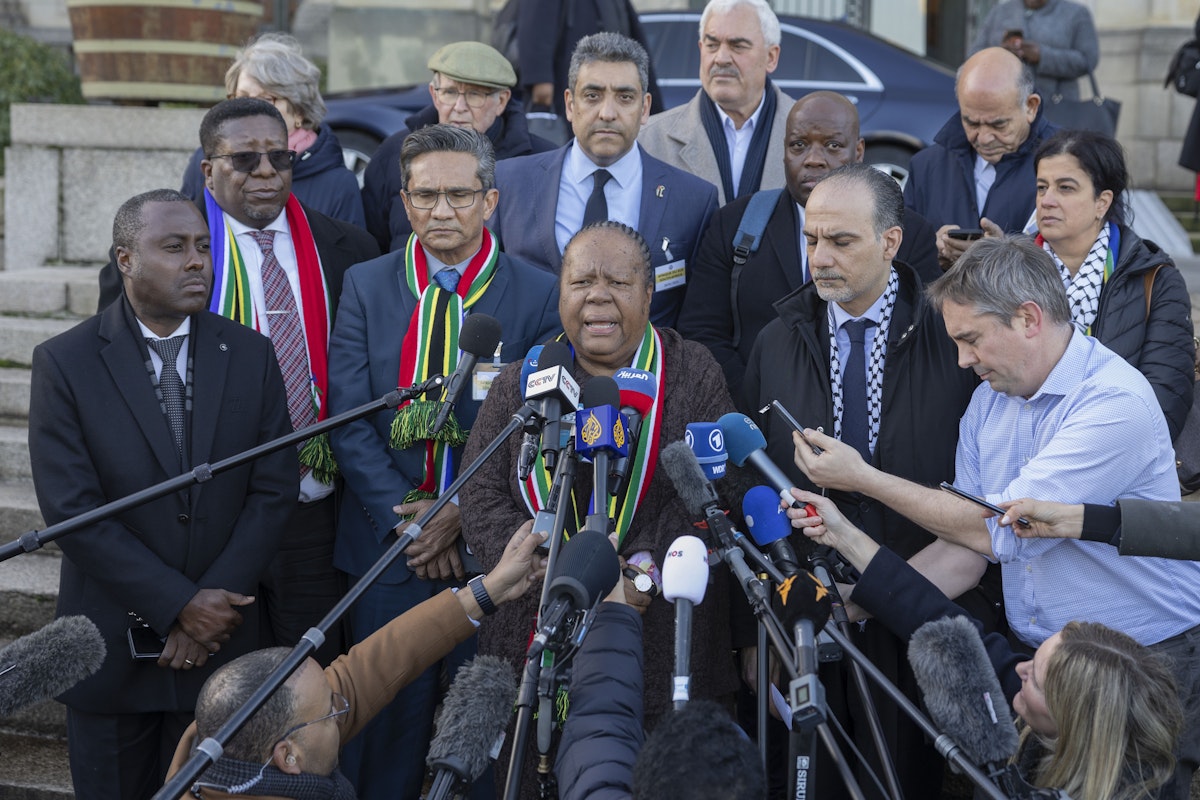
Undeniably humiliating for Israel, however, were the voting margins. All of the Court’s measures were accepted by a margin of 15-2 or 16-1. One judge—Julia Sebutinde of Uganda—voted against every measure on the grounds that the ICJ had no jurisdiction to hear the case, thus making her objection rather moot. Not even Aharon Barak, the former Israeli Supreme Court president appointed to the panel, went that far. Barak voted in favor of two of the Court’s measures: the order demanding punishment for incitement, and the request for “immediate and effective measures to enable the provision of urgently needed basic services.” Three months ago, Barak said he agreed “totally with what the [Israeli] government is doing,” but perhaps he has since foreseen that his own legacy as a defender of his country’s constitutional system is worth more than protecting Netanyahu before the judgement of the world.
On October 12, when Isaac Herzog gave his opinion that there was no difference between a Palestinian militant and a pregnant Palestinian woman, he was standing next to Ursula von der Leyen, head of the European Commission. As Herzog spoke, von der Leyen blinked and said nothing. She heard it said, not a few inches from her own face, that an “entire nation” was guilty and deserving of death, and raised no objection. Western diplomats and politicians have done a lot of that recently: blinking and saying nothing, stirring only when the purse strings jingle and the Israelis ask for more ammunition. This is not a facetious observation: Most nations, including the United States, have strict rules against selling arms to nations that violate international law. Though such a rule has not stopped gun-runners before, part of the worth of the ICJ’s order is in having one more weapon that might be used to run a stick through the spokes of the machine, something that might, with a little effort, slow the tally of Palestinian dead from steadily ticking upwards.
In delivering its statement just two weeks after hearing first submissions, the Court was clearly sensitive to the urgency of the Palestinian plight. Indeed, part of the task before the judges was to find whether South Africa’s application was sufficiently urgent such that a ruling couldn’t wait until later. (They found that it was.) For those Gazans still alive but on the edge of starvation, for those Palestinians sleeping now in the open and with no medical care at all, let alone power or potable water, the Court’s speed matters. The Israeli government has now been told that it must give them aid and prevent their slow slide into oblivion. But what of the dead? What of the homes—360,000 of them, according to the ICJ—the IDF has shelled, bombed, and dynamited, to which no Palestinian can ever return?